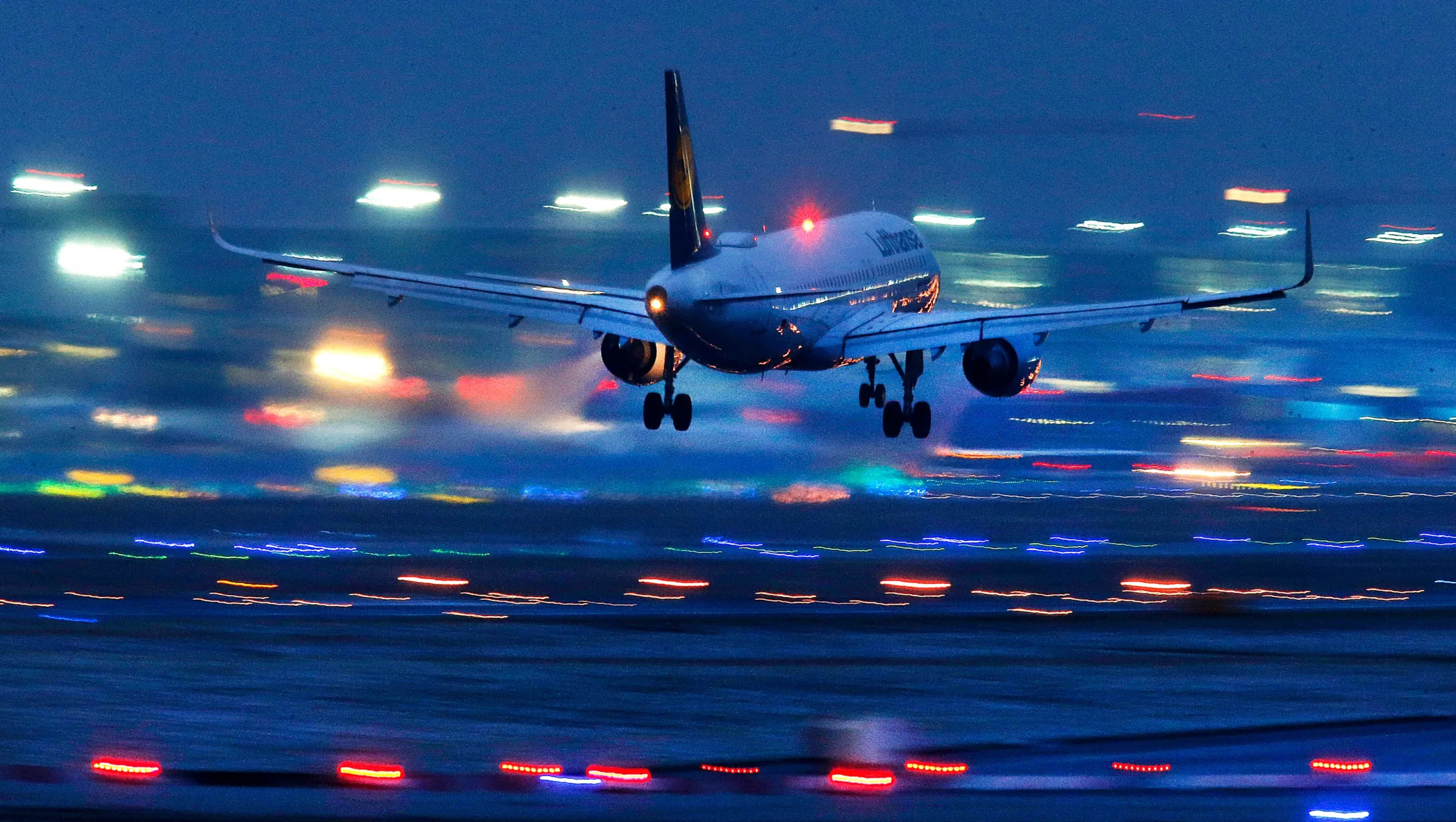The prohibition on night flights is not a pleasant scenario. Although night flight bans are occasionally included in the itinerary, flights are intended to be safe, punctual, and enjoyable. Your plane is being redirected and is no longer permitted to land at the target airport due to a night ban. This implies that to transport people to their destinations, airlines must discover alternate routes. We’ll go into great detail on the history and potential implications of the night flight prohibition in this blog post (article).
When is the night flight ban?
The night flight prohibition typically lasts from 10 p.m. until 6 a.m. During certain periods, aircraft operations in the vicinity of the prohibited area are minimized. There are, nevertheless, several nations that permit brief daytime flights or flights for urgent medical attention.
If the aircraft doesn’t land in the intended location
Should the aircraft fail to land at the designated spot, the airline needs to consider other options. When this happens, the airline might attempt to stick to the original flight plan and, if it can, take a safer path. The airline must think of other choices, though, if taking such a route is not feasible. This can need using an elaborate plan to get several individuals to their destination or the implementation of emergency detours. The impacted passengers will either need to rebook the flight or arrange for alternate transportation in such a scenario.
What happens if flying at night is banned?
When night flights are prohibited, there is very little aircraft use in the neighborhood of the prohibited region. The night flight prohibition is typically in effect from 10 p.m. to 6 a.m. But depending on where you are, this restriction could change. Cities vary greatly in the severity of their prohibitions. Nonetheless, there are now several circumstances in which the night restriction is not applicable, such as medical emergencies or less legally organized flights during the day.
Passenger Rights in the Event of a Night Flight Ban and Diversion
In this instance, am I eligible for payment? If a night flying prohibition caused a passenger’s itinerary to be altered, they might be eligible for reimbursement in certain situations. It depends, though, on whether the diversion was brought about by a technical issue or by another issue outside the airline’s control. If this is the case, EU air passenger rights provide a claim for compensation in many countries. Compensation is not always owed, though, if your delay is brought on by a prohibition on night flights. You might be pleased with your pocketbook if you arrive at least three hours later than expected. Customers seeking further information should speak with the customer service department of their airline.
To what extent might a night flying ban cause a delay in my travel plans?
Different amounts of compensation may be owed depending on the route’s length (flight distance): 250 euros for up to 1,500 kilometers, 400 euros for 1,500 to 3,500 kilometers, and 600 euros for more than 3,500 kilometers.
Please note that there will be no reimbursement for cancellations or delays brought on by unforeseen events. Such unusual circumstances can include, for example:
- The flight was delayed due to bad weather.
- Airspace or the airport being closed (airport closure)
- Strikes at air traffic control
- An occurrence of a natural disaster
- Bomb threats or acts of terrorism
- Since the airline has no control over these occurrences, they are not responsible for the expenses spent. They thus frequently bear the well-known label of “force majeure.”
Unusual situations don’t include:
- Crew member illness
- Operational factors (for example, the flight was initially scheduled too near to the commencement of the night flight prohibition)
- An airplane technical flaw
Which airports have a night flight ban?
The European Union has many airports that prohibit nighttime flights. The majority of the world’s largest airports, like Frankfurt am Main, Paris Charles de Gaulle, and London Heathrow, are among them. Some airports might also prohibit flying at night, depending on the state government. In the EU, flights are generally prohibited between 10 p.m. and 6 a.m., while individual nations may have different limitations.
Where in Germany are flights at night banned?
Severe operational limitations, including outright prohibitions on night flights, are in place at the majority of German airports (Airports). Night flights between 11 p.m. and 5 a.m. are generally prohibited in Germany. Night flights are, however, prohibited entirely or in part at many airports. For example, night flights are strictly prohibited at Stuttgart and Düsseldorf airports. Frankfurt Airport does, however, have unique topographical limitations for specific areas and only a limited prohibition on night flights. Additionally, from 11:00 pm to 5:00 am, Cologne-Bonn has a night flying ban.
Since 2011, flights between 11 p.m. and 5 a.m. are strictly prohibited at Frankfurt Airport. Night flights are not prohibited at the airports of Cologne-Bonn, Frankfurt-Hahn, Nuremberg, and Hanover (however there are some limitations for aircraft types that are very noisy).
| Airports | Regulation | Exceptions |
|---|---|---|
| Lübeck | Restriction of night flights from 11:30 pm to 05:30 pm | none |
| Hamburg | Restriction of night flights from 11 p.m. to 6 a.m. | Night mail flights Delayed take-offs and landings until midnight |
| Bremen | Restriction of night flights from 10:30 p.m. to 6:00 a.m. | Delayed take-offs and landings until midnight and early landings from 5 am. |
| Berlin-Schönefeld (now BER) | No night flight restrictions | Between 12 am and 6:00 am for Chapter 3 aircraft only. |
| Berlin Brandenburg Airport | Restriction of night flights from 11.30 pm to 05.30 am | Delayed landings until midnight hrs when Chapter 3 aircraft and Home Carrier |
| Hannover | No night flight restrictions | Between 11 pm and 6 am for Chapter 3 aircraft only. |
| Münster/Osnabrück | No night flight restrictions | Between 10 pm and 6 am for Chapter 3 aircraft only. |
| Paderborn/Lippstadt | No night flight restrictions | none |
| Niederrhein | Restriction of night flights from 10 p.m. to 6 a.m. | Chapter 3 aircraft scheduled landings until 11 pm and delayed landings until 11.30 pm. Delayed landings by home carriers until midnight and early landings from 5:00 am. |
| Dortmund | Restriction of night flights from 10 pm to 6 am | Late take-offs until 10.30 pm and late landings until 11.30 pm |
| Düsseldorf | Restriction of night flights from 10 p.m. to 6 a.m. | Delayed take-offs and landings until midnight and early landings from 5 am. |
| Köln/Bonn | No night flight restrictions | Between 10 pm and 6 am for Chapter 3 aircraft only. |
| Leipzig/Halle | Restriction of night flights in passenger traffic from 11:30 p.m. to 5:30 a.m. None Night flight restriction for cargo traffic | Delayed landings until midnight only for Chapter 3 aircraft |
| Dresden | Restriction of night flights from 11:30 p.m. to 5:30 a.m. | Delayed take-offs and landings until 11 pm, and early landings from 5 am. |
| Erfurt/Weimar | No night flight restrictions | Between 10 pm and 6 am for Chapter 3 aircraft only. |
| Frankfurt | Restriction of night flights from 11 p.m. to 5 a.m. | Delayed take-offs and landings until 12 am |
| Frankfurt-Hahn | No night flight restrictions | Between 10 pm and 6 am for Chapter 3 aircraft only. |
| Saarbrücken | Restriction of night flights from 10:30 p.m. to 6:00 a.m. | Delayed landings until 11 pm |
| Karlsruhe/Baden-Baden | Restriction of night flights from 11 p.m. to 6 a.m. | Landings up to 11 pm if Chapter 3 aircraft and home carrier. Delayed landings until 11.30 pm if the home carrier |
| Stuttgart | Restriction of night flights from 11 pm to 6 am for take-offs | Landings until 11.30 pm Night mail flights and military aircraft movements |
| Friedrichshafen | Restriction of night flights from 10 p.m. to 6 a.m. | Night mail flights Delayed take-offs and landings until midnight and early landings from 5 am. In the night marginal hours (from 10 pm to 12 am and from 5 am to 6 am) only for Chapter 3 aircraft. |
| Nürnberg | No night flight restrictions | Night operations between 10 p.m. and 6 a.m. only for Chapter 3 aircraft |
| Memmingen | Restriction of night flights from 10 p.m. to 6 a.m. | none |
| München | Restriction of night flights from 12 am a.m. to 5:00 a.m. | Night mail flights Delayed take-offs and landings until 12 am and early landings from 5 am. In the night marginal hours (from 10 pm to 12 am and from 5 am to 6 am) only for Chapter 3 aircraft. |
When does Frankfurt Airport have a night ban?
When does Frankfurt’s nighttime prohibition expire? From 11:30 p.m. until 5:00 a.m., night flights are strictly prohibited at Frankfurt Airport. Certain parts of the airport are subject to additional restrictions due to unique topography. But there can be an exception. To safeguard public health, there have been complaints regarding aircraft noise.
Why are there so many planes flying at night?
Airlines operate at night for a variety of reasons. Lower noise levels, less air pollution, and stricter air traffic management are some of the most popular explanations. Early in the morning is normally a calmer time of day for aviation traffic. A more stable flight is also made possible by the fact that nighttime weather is typically calmer.
Are flights at night dangerous?
Given that the safety standards for all flights are met to the same high degree, night flights are equally safe as day flights. But because sight and navigation are less at night, there is an increased chance of crashing. Pilots need special training to navigate at night to reduce this risk.
Do flights at night work better?
There is debate over the superiority of night flights over day flights. There are benefits and drawbacks to night flights. Less noise, less pollution, less pollution, and a more flexible timetable for both passengers and cargo are among the benefits. Night flights can, however, also be risky due to reduced visibility and pilot concentration levels. For this reason, before doing any night flight, all safety precautions must be properly observed. Ultimately, it is impossible to determine with absolute certainty which flights are preferable, day or night.

